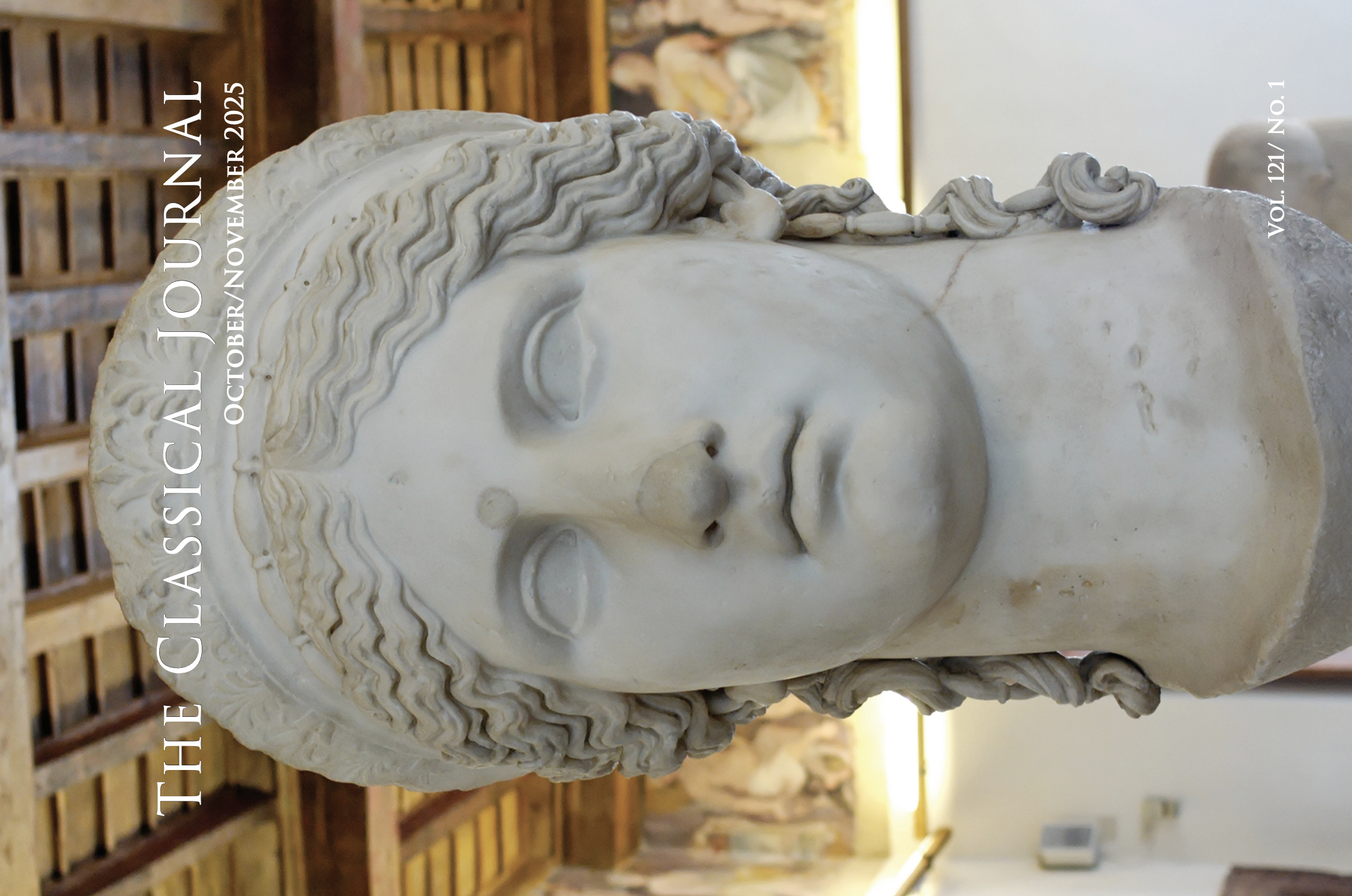The following articles are contained in CJ
115.1
Abstracts of Articles
GEMSTONES, TEXTILES AND A PRINCESS: PRECIOUS COMMODITIES IN HELIODORUS’ AETHIOPICA
This article examines the cultural biographies of a selection of precious objects in Heliodorus’ Aethiopica, local and exotic, and shows how the transactions in which these are involved may illuminate the commodification of the heroine. The article evolves around the export-import metaphor used to discuss precious commodities and applies it on Chariclea and her tale.
CHILDREN AND BULLYING/HARASSMENT IN GRECO-ROMAN ANTIQUITY
Fully recognizing all the possible limitations and even objections to a historical inquiry into bullying and harassment in Antiquity, this article tackles the subject by strictly limiting the situations to be studied. It only takes into account those instances in which children or adolescents are both the agents and the victims of bullying and harassing behavior. It only looks at the interaction between children of free status. First, I study children in a stage of life in which they were largely subjected to the authority of parents and other educators. After this, the focus is on young girls, whose coming of age put them in a peculiar situation regarding harassment. Finally, student life is given due attention. In conclusion, I point out how a careful consideration of these fragments not only informs us about aspects of everyday life of young people in antiquity, but also about ancient concepts of personhood.
NEC TIBI SUFFICIAT TRANSMISSAE GLORIA VITAE OTIUM AND AMBITION FROM STATIUS TO ENNODIUS
Statius’ Silvae are part of a lengthy Roman literary tradition of justifying temporary or permanent retirement from public affairs in favor of the productive use of otium. Praiseworthy uses of otiumtypically involved liberal studies such as philosophy and poetic composition, pursued either during a temporary period of rest from public duties, or as the occupation of permanent retirement. This paper examines how Claudian and Sidonius adapted some aspects of Statius’ otiummotifs in order to praise addressees who faced very different social and political circumstances from the Flavian era. Achilles’ seclusions at Scyros and Troy provide these poets with a mythological narrative of withdrawal and return. The paper concludes with discussion of Ennodius’ adaptation of Statius’ motifs in the unexpected context of an epithalamium.
THE SUBJECTS OF SLAVERY IN 19TH-CENTURY AMERICAN LATIN SCHOOLBOOKS
A new study by the Southern Poverty Law Center has argued that American education is failing in its ability to teach “hard history,” and especially the history of American slavery, to today’s students. In similar ways, Erik Robinson has recently highlighted the difficulty that high school Latin teachers often face teaching certain “horrors” of the ancient world like slavery in their classrooms. Both Robinson and the SPLC call particular attention to the role of textbooks in such failings. In this article I want to share some results of a survey I conducted on the representation of slavery in American Latin schoolbooks from the 19thcentury. I use these textbooks, and in particular a close reading of student exercises contained within them, to shed light on the problematic ways slavery is presented in today’s books. While I certainly do not seek to “praise” or rationalize the often brutal depictions of slavery in 19th-century schoolbooks, I believe they show a portrayal of slavery that is revealing in its frankness, one that, even through a lens of fear and paranoia, acknowledges the agency and experience of the slave. Such a contrast allows us to “de-naturalize” the ways that slavery is shown in many current Latin textbooks, to understand that the tendency of today’s textbooks to conceal the brutality of slavery behind a bland inoffensiveness (to whom?) is every bit as ideological in its operations and outcomes as grappling with its darkness.


